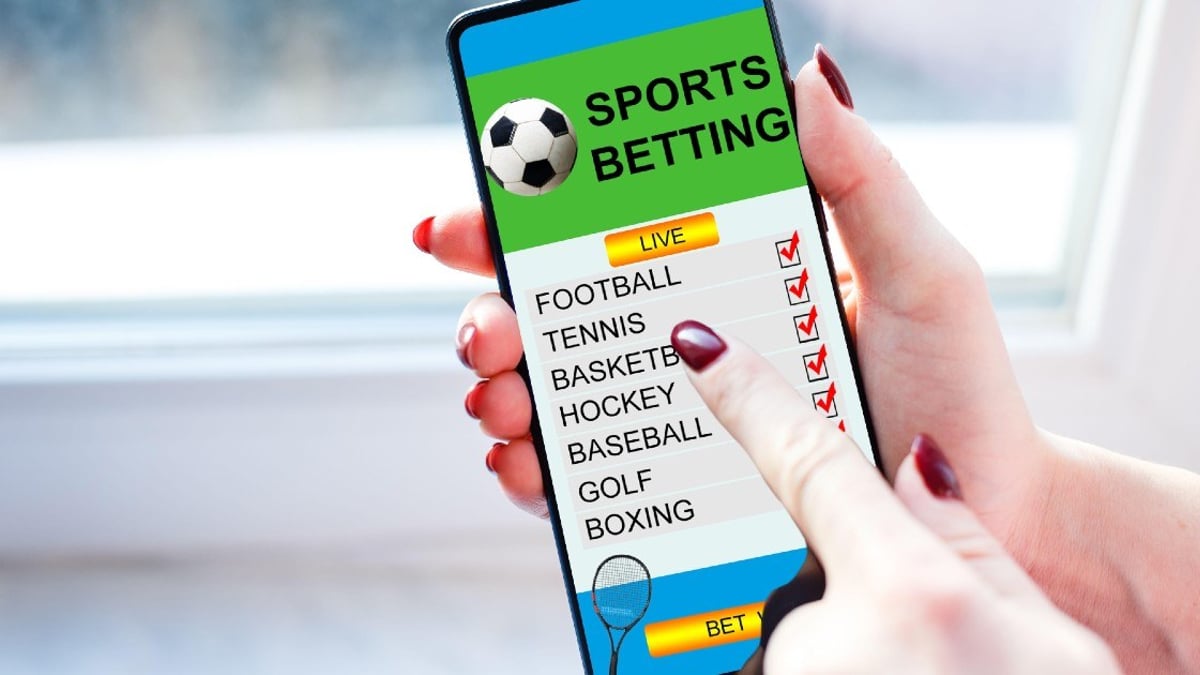North Carolina Poised To Legalize Mobile Sports Betting

North Carolina is on the verge of legalizing mobile sports betting following the passage of HB 347 by the Senate. Several steps remain in the process, but the Tar Heel State is on track to become the 30th state to legalize online sports betting sites and the third this year – matching last year’s tally.
In 2022, Kansas, Maine, and Massachusetts joined the ranks of mobile betting states. Kentucky and Vermont added their names to the list this year, with North Carolina potentially making it a trifecta.
The Road Ahead for N.C. Sports Betting
The N.C. mobile sports betting bill already passed the North Carolina House in March, but it will need another affirmative vote after numerous changes to the legislation in the Senate. The House is expected to take up the bill next week and is also expected to concur following comments by House Speaker Tim Moore.
Assuming the House concurs with the Senate version, the bill would go to the desk of Gov. Roy Cooper to be signed into law.
If the House doesn’t concur, the next step would be a conference committee with members of the House and Senate appointed to find a compromise between the two versions of the bill.
Potential Complications to Passing Sports Betting Bill
Moore is the potential wild card after he ended a longstanding policy of not speaking about gambling bills, telling WRAL’s Brian Murphy before Thursday’s vote in the Senate, “Right now, the plan is probably that we don’t concur, but we’re going to talk through it.”
Per sources, several lawmakers spoke with Moore and changed his mind on turning sports betting into an omnibus gambling issue and seems to be leaning towards concurrence with the Senate version of the bill.
Sports gambling in NC:
— Brian Murphy (@murphsturph) June 1, 2023
House: ✅
Senate: ✅
To come:
House again: Likely ✅ (per Speaker)
Governor: Likely ✅ (per previous comments)
Start date: No sooner than Jan. 8, as late as June 2024.https://t.co/N5M9uPwvyc
According to WRAL, Moore considered combining sports betting with other gambling expansions like VLTs and casinos, which would almost certainly kill the bill.
That said, nothing is preventing Moore (or other lawmakers) from changing his mind again and expanding the bill’s scope over the next week.
A Look Inside the N.C. Sports Betting Bill
A mobile North Carolina sports betting license costs $1,000,000, renewable every five years. The Senate version of the law imposes an 18% tax rate (operators cannot deduct promotional expenses from their tax liability), an increase from the 14% rate passed by the House.
The bill authorizes retail betting at eight locations (retail betting is currently limited to tribal casinos):
- PNC Arena
- WakeMed Soccer Park
- Charlotte’s Bank of America Stadium
- Spectrum Center
- Charlotte Motor Speedway
- North Wilkesboro Speedway
- Sedgefield Country Club
- Quail Hollow Country Club
Up to 12 mobile betting licenses can be issued by the Lottery.
Each location can partner with a sports betting provider, leaving as few as four untethered licenses available. However, minor changes to the bill in the Senate require potential licensees to demonstrate in-state investment and job creation as part of the licensing criteria.
Tribes can offer mobile betting through an agreement with the state. The tribal licenses do not count against the 12 available licenses.
What it Means for the North Carolina Market
The bill’s fiscal note indicates that North Carolina anticipates sports betting will generate $75 million in tax and fee revenue in the fiscal year 2024-25. The state expects that to increase to $100 million in FY2027-28.
With a population of 10.5 million and an open market with reasonable operator burdens, North Carolina should have no problem meeting these expectations.
Virginia sports betting is in its third year. With 8.6 million residents, North Carolina's neighbor to the north averages around $50 million in monthly sports betting revenue. North Carolina will receive around $9 million in monthly tax revenue if it produces similar results.
Where Does the Money Go?
North Carolina does a good job of using the expected revenue for specific sports and gambling-related policy items.
Per the fiscal note, “Assuming sufficient funds are available from tax collections, the remaining amount is distributed annually as follows:
- $2 million to the Department of Health and Human Services for its gambling addiction education and treatment programs;
- $1 million to North Carolina Amateur Sports for local governments or nonprofits to purchase youth sports equipment or to provide for public facility upgrades or improvements that would benefit youth sports;
- $300,000 each to 13 University of North Carolina constituent institutions to support college athletic departments;
- $1 million to the North Carolina Outdoor Heritage Advisory Council for grants to assist sports teams with travel expenses and incentive grants to attract sporting events for nonprofessional athletes;
- Of the remaining amount,
- 20% to be distributed equally among the 13 UNC institutions discussed earlier to support, not supplant, their collegiate athletic departments,
- 30% to the North Carolina Major Events, Games, and Attractions Fund, and
- 50% to the General Fund.











